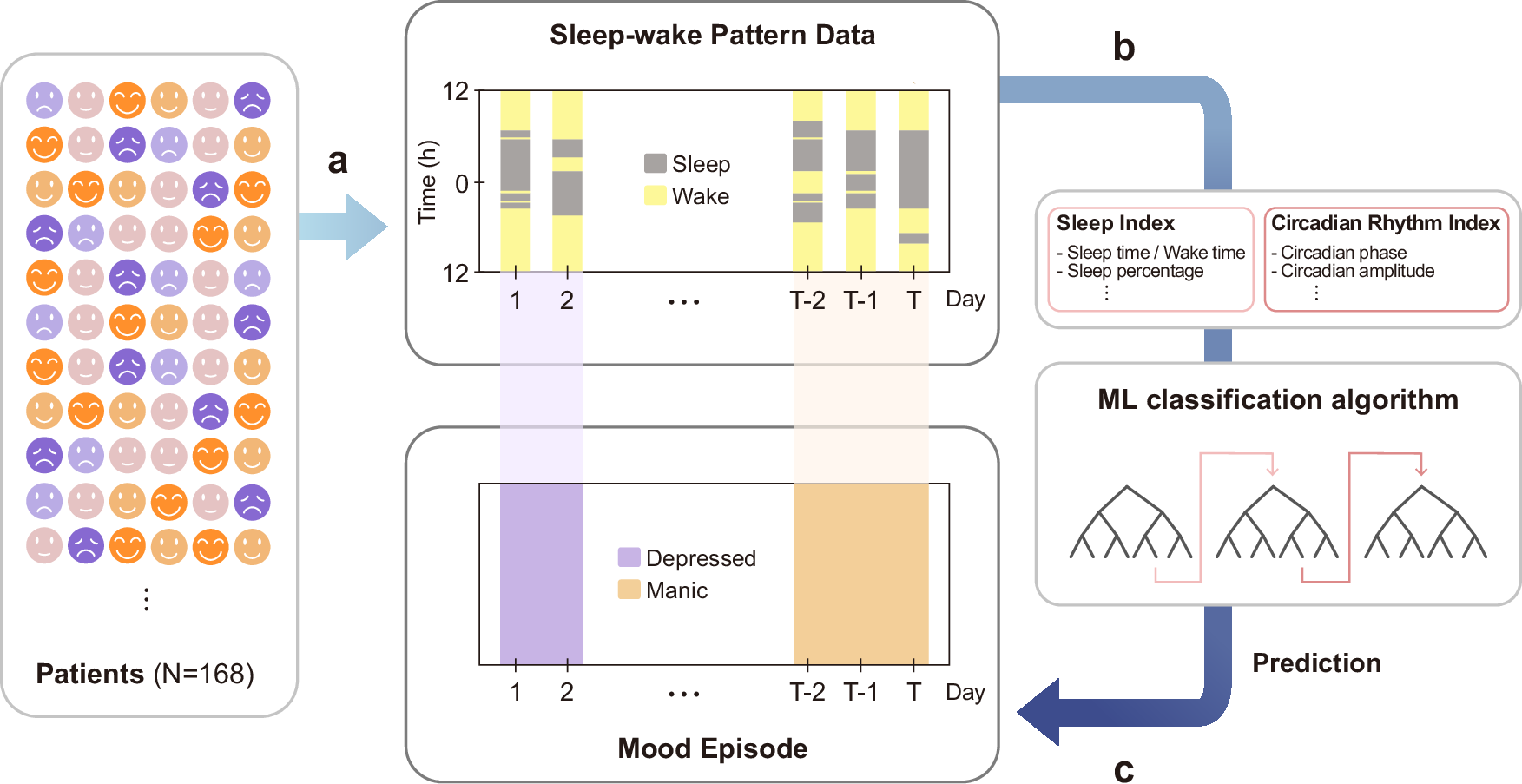2024-11-19 韓国基礎科学研究院(IBS)
<関連情報>
- https://www.ibs.re.kr/cop/bbs/BBSMSTR_000000000738/selectBoardArticle.do
- https://www.nature.com/articles/s41746-024-01333-z
ウェアラブルな睡眠と概日リズムの特徴を用いて、気分障害患者の気分エピソードを正確に予測する Accurately predicting mood episodes in mood disorder patients using wearable sleep and circadian rhythm features
Dongju Lim,Jaegwon Jeong,Yun Min Song,Chul-Hyun Cho,Ji Won Yeom,Taek Lee,Jung-Been Lee,Heon-Jeong Lee & Jae Kyoung Kim
npj Digital Medicine Published:18 November 2024
DOI:https://doi.org/10.1038/s41746-024-01333-z

Abstract
Wearable devices enable passive collection of sleep, heart rate, and step-count data, offering potential for mood episode prediction in mood disorder patients. However, current models often require various data types, limiting real-world application. Here, we develop models that predict future episodes using only sleep-wake data, easily gathered through smartphones and wearables when trained on an individual’s sleep-wake history and past mood episodes. Using mathematical modeling to longitudinal data from 168 patients (587 days average clinical follow-up, 267 days wearable data), we derived 36 sleep and circadian rhythm features. These features enabled accurate next-day predictions for depressive, manic, and hypomanic episodes (AUCs: 0.80, 0.98, 0.95). Notably, daily circadian phase shifts were the most significant predictors: delays linked to depressive episodes, advances to manic episodes. This prospective observational cohort study (ClinicalTrials.gov: NCT03088657, 2017-3-23) shows sleep-wake data, combined with prior mood episode history, can effectively predict mood episodes, enhancing mood disorder management.


